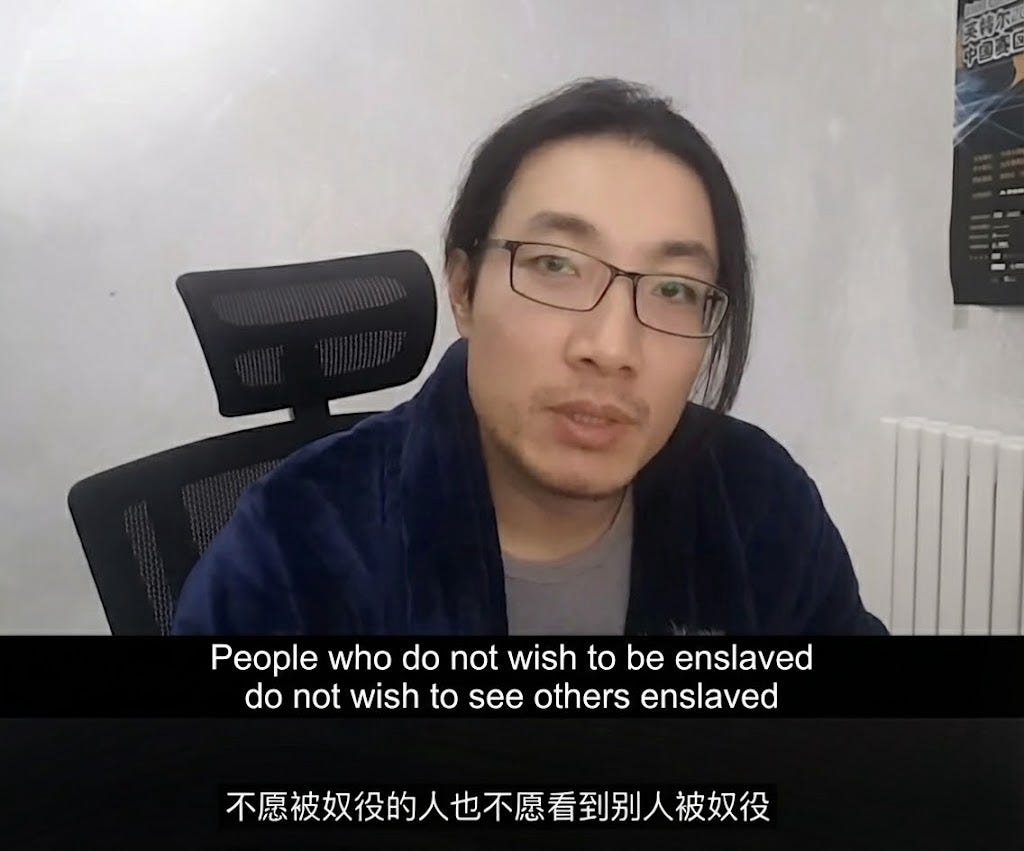The court date is Dec 15 for Guan Heng who is being held in Binghamton, New York, despite a pending asylum claim. I’m horrified that the US seems to have completely abandoned human rights and might actually hand this man to torture and death by the Chinese Communist authorities? Sincerely, Magnus Fiskesjö <nf42@cornell.edu>
Source: Human Rights in China (12/12/25)
Man who filmed Uyghur concentration camps now fights for his own freedom in the United States
“If he gets sent back, he’s really dead,” Guan Heng’s mother said. His fate hangs in the balance as he awaits his scheduled court appearance in New York on December 15th.
By Lu Jingwei (Atlas Luk)
Editor | Qiu Li
This post was originally written in Chinese: 中文版

Screencap of the video documenting Uyghur concentration camps released by Guan Heng.
This is a story of courage, escape, and absurd paradox.
In October 2020, Guan Heng, a young man from Henan, China, drove alone into Xinjiang, using a telephoto lens to document the concentration camp facilities hidden in the wilderness, towns, and military camps. To make these images public, he embarked on a thrilling escape: he made his way through South America and finally sailed alone in a small boat for 23 hours from the Bahamas, successfully landing in Florida. After arriving in the United States in 2021, he released the videos as planned. This footage became crucial evidence for the international community (including BuzzFeed News’ Pulitzer Prize-winning team) to confirm what China was doing in Xinjiang.
Four years later, Guan Heng, who had once thought he was safe, lost his freedom in the United States. In August 2025, during a raid by U.S. Immigration and Customs Enforcement (ICE) on Guan Heng’s roommate, Guan Heng was arrested in upstate New York for “illegal entry.” Now, he is in the Broome County Correctional Facility in New York State, facing the threat of deportation—being forced to return to the China he risked everything to escape.
On the morning of August 21, 2025, in a residential area in upstate New York, Guan Heng was awakened by a violent knocking on his door. It was ICE agents. Continue reading Guan Heng fights for freedom in the US









